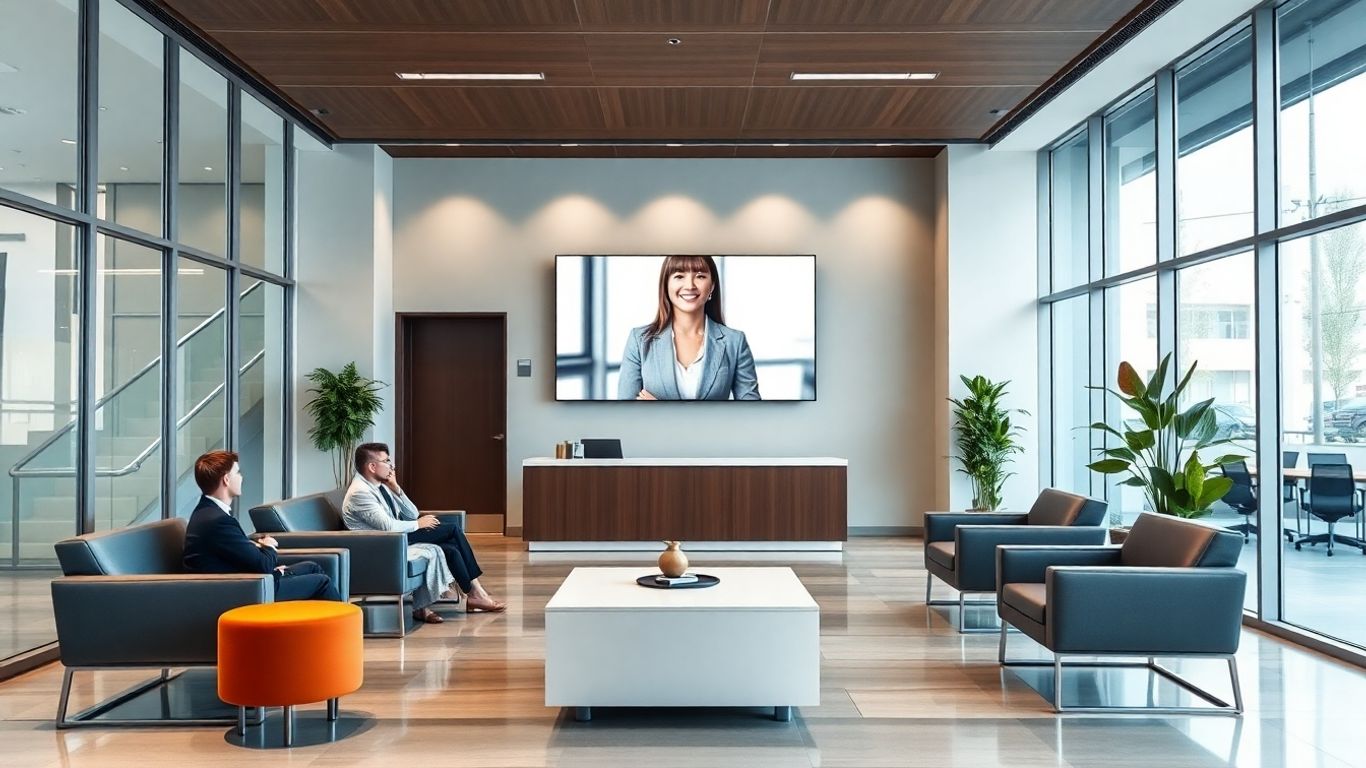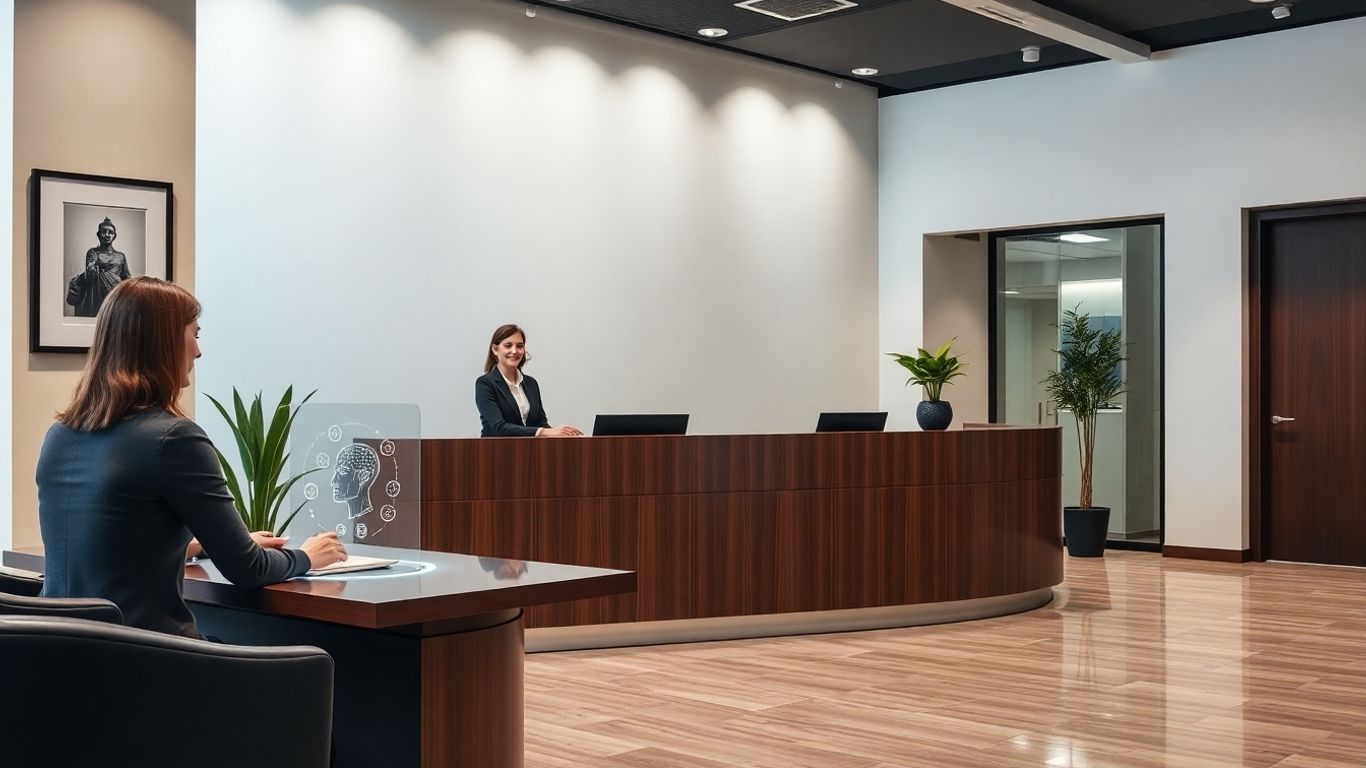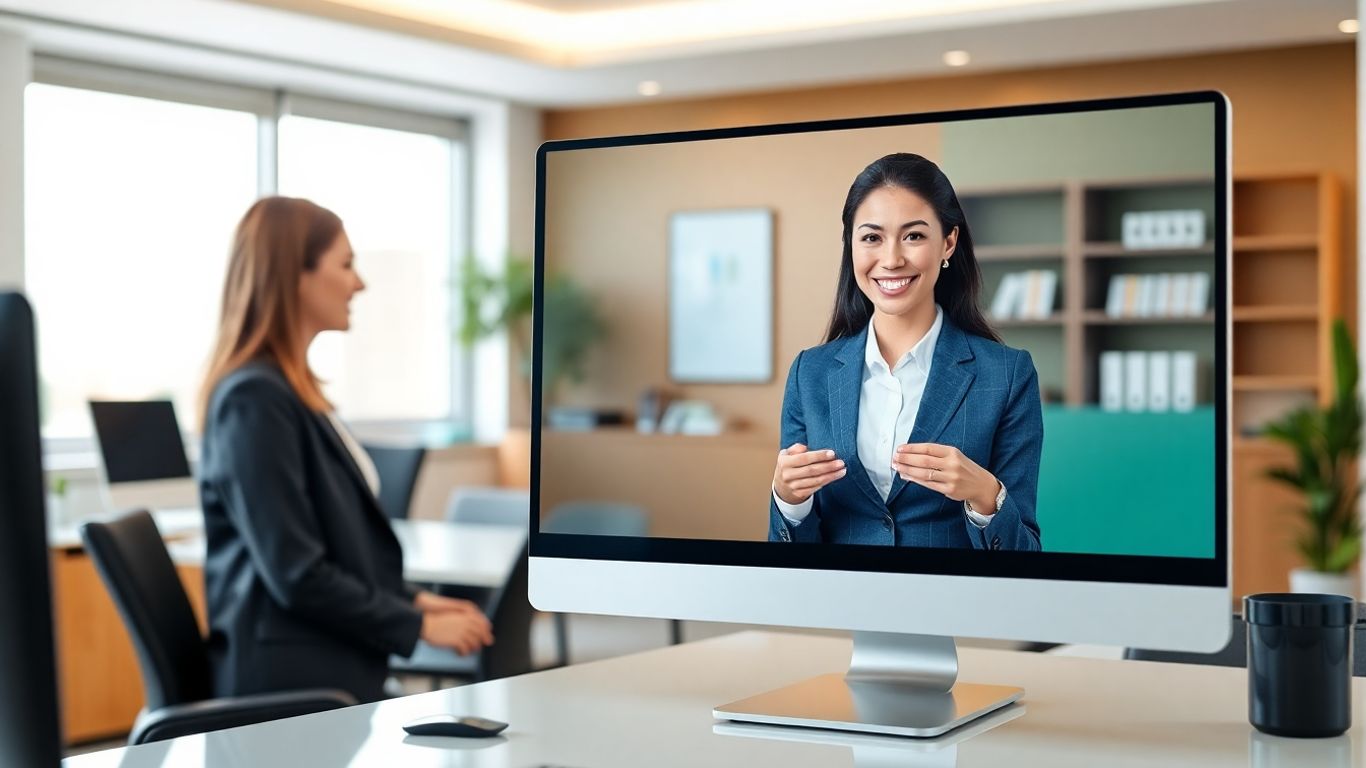In 2025, law firms are under more pressure than ever to deliver fast, reliable, and friendly service to their clients. But let's be honest—managing every phone call, message, and appointment while juggling legal work is a tall order. That's where a law firm virtual receptionist steps in. This tool doesn't just answer phones; it changes how your firm communicates, captures leads, and keeps clients happy, all while saving you time and money. If you're tired of missed calls and playing catch-up, it might be time to see what a virtual receptionist can do for your practice.

Communication between lawyers and clients has changed so much over the years, and not always for the better. There was a time when a client could call the office and expect to hear a familiar voice, but now, with busier schedules and more clients to juggle, things don’t always go smoothly. Let’s look at the major shifts happening—and where we’re headed.
Missing just one call can mean losing a client forever. In the past, law firms lost tons of business simply because phones rang out or voicemails piled up unchecked—out of sight, out of mind. These days, nobody wants to wait around. Instant answers have become the new normal because immediate communication tells clients they're a priority.
Here are three changes that have reshaped response expectations:
Fast, personalized responses make clients feel known—not just like another case file collecting dust on a desk.
Law firms used to rely on old-school methods: voicemail, paper calendars, long phone tag sessions. That’s long gone. Technology is making every part of client communication more organized and immediate. Now, even solo attorneys can feel like they have a whole staff covering the phones.
Here’s a simple table to show the difference:
In legal work, timing is everything. A delayed response can mean a missed deadline or a lost client. As clients get used to real-time updates everywhere else, they expect it from their law firm too.
Bottom line, the legal field is catching up to what clients want: quick, reliable, accessible communication every single time they reach out.

A virtual receptionist for law firms isn’t just answering the phone—it’s a whole new way to manage client communication in 2025. Think of it as your assistant who never needs a break, never calls in sick, and always knows exactly how to greet your clients.
Here’s a quick breakdown of how a virtual receptionist handles day-to-day tasks:
Clients get instant replies and you get fewer distractions—as simple as that.
Dealing with legal matters, every call could be something important, sensitive, or time-critical. The virtual receptionist:
All of this happens whether it’s 10 a.m. or 10 p.m.
For law practices aiming to modernize, using a reliable AI-powered receptionist connects calls, calendars, and even text inquiries around the clock.
When a new client reaches out, those first few seconds matter. The virtual receptionist:
A virtual receptionist doesn’t just make your team look organized and responsive—they make every client feel heard, valued, and important, no matter how busy your office gets.
If you’re still thinking receptionists just handle the phone, it’s time to see how they now serve as a front line for positive, consistent client experience, and how they can plug right in with other essential business tools for legal professionals (such as these recommended by experts).
Imagine if your law firm never missed an opportunity, no matter what time a client called. With a virtual receptionist providing round-the-clock coverage, this is now possible. 24/7 availability isn't just a nice perk—it's a huge shift for law firms hungry for new business and better client care. Here’s how this always-on model changes what’s possible for attorneys.
This coverage means your law firm can welcome new clients regardless of when they reach out.
Clients don't think in terms of your office hours—they expect legal help whenever they need it. With constant phone coverage, no one falls through the cracks.
For firms ready to stay ahead of the curve, the switch to round-the-clock virtual reception is a game-changer. Businesses across industries are already benefiting from constant, AI-driven support, and the legal field is quickly following suit.
Traditional legal intake is notorious for being slow and scattered, but law firms in 2025 have a much better way. AI-powered virtual receptionists now automate initial data collection, pre-qualify prospective clients, and sync everything directly to your core legal tools—without sacrificing compliance. Let’s break down what this looks like in practice.
Instead of generic intake forms, virtual receptionists build smart, adaptive surveys that shift questions based on each caller’s answers. This gets you:
AI solutions like My AI Front Desk make these adaptive forms as easy to set up as a regular phone greeting.
AI virtual receptionists can do more than just collect names and dates—they use logic to triage:
This triage ensures your team focuses only on clients who are the best fit for your practice areas. You see at-a-glance which leads need fast follow-up, and which can safely wait or be redirected.
No good comes from siloed information. Modern virtual receptionist systems connect directly to your practice management, calendars, and CRM tools, ensuring nothing falls through the cracks.
Setting up automated legal intake doesn’t just save time; it helps law firms deliver a smoother experience and comply with strict data security rules—without adding extra IT headaches.
By embracing automated intake, your law firm keeps intake professional, organized, and audit-ready. This is one of the key reasons why top-performing practices have moved away from old-school phone trees and paper-based checklists, choosing smarter systems and more reliable client service.
AI-powered virtual receptionists in law firms use several smart techniques to make sure the right person is on the line. Some common caller verification methods are:
Robust caller verification helps law firms stop unauthorized access right at the first step.
Even with new technology, the human element stays important—AI might verify identity, but staff should still review unusual requests or flags for extra safety.
When it comes to handling legal matters, every bit of client data needs to stay private. Modern AI systems designed for legal work:
Here's a quick summary table for typical safeguards:
A virtual receptionist built for lawyers will also follow the industry’s best practices during call handling and document transfer—including strict controls on who can access sensitive files or transcripts. If you work with a provider offering customizable AI phone receptionist features, make sure they can explain every security measure in place.
It isn’t just about keeping hackers out. Legal AI receptionists should help firms follow rules like attorney-client privilege and laws covering personal data. This involves:
Law firms should periodically review their AI receptionist’s compliance. If a client asks, you want to confidently explain how their information stays safe.
Keeping data secure isn’t a one-time job. It’s about habits, not just hardware or software. Every law practice should treat security as part of daily business, not just an IT problem.

It's wild how much client expectations have shifted. Now, most people expect even the smallest law firm to answer right away, understand their case instantly, and never once forget the details. That's a tall order. AI-powered virtual receptionists make this level of personal service possible—day or night, no matter who’s calling. Here's how it works:
You don't want your law practice sounding like every other business out there. With AI, you get:
The end result? Clients feel understood from the first conversation rather than pushed through a generic intake process. These AI scripts let you
control the experience down to the greeting and the follow-up.
Everyone recognizes when a call feels robotic. That’s why branding matters:
Firms can have the AI introduce itself exactly as you wish—like "Thanks for calling Johnson Law, where we listen first." Little touches like this go a long way in making a strong first impression.
Your virtual receptionist isn’t just a machine answering calls—it’s an extension of your law firm’s identity, ready to deliver a client experience you are proud of, every time.
Not every client is going to be comfortable speaking English, especially about personal or legal problems. AI receptionists can offer:
Here's a simple breakdown:
Even smaller firms can now serve a more diverse range of clients, without hiring additional team members. Services like White Label dorxata make it even simpler for anyone to set up multilingual support, so no potential client feels left out.
The bottom line: Personalized AI receptionists let attorneys provide a "big firm" client experience, whether you work solo or with a team. And these tools keep getting smarter, more human, and more adaptable as the months go by.

Switching from a traditional front desk to a virtual receptionist can feel like stepping into a new world of law firm management—but the cost savings are real and add up fast. You’re not just saving money, you’re changing how your firm operates on a day-to-day level.
Here’s a quick comparison:
Law firms that make the switch to a virtual receptionist often report immediate financial relief, but what surprises most is how much smoother their workflow feels. It's not just about the savings; it's about letting lawyers do what they do best—practice law.
Getting your virtual receptionist to "talk" to the rest of your law firm's technology may sound complicated, but it's surprisingly straightforward—and it pays off big time. When your AI receptionist links up with Zapier, suddenly you're connected to more than 9,000 business apps. This transforms your phone system from a silo into the heart of your operations.
Here's a quick snapshot of what that integration can look like:
You can learn more about integration features through some affordable options like My AI Front Desk's flexible plans.
Manual appointment booking is out. Modern virtual receptionists connect right to your law firm's calendar. When a potential client calls in at 10 pm, your AI can offer available slots and secure appointments with zero risk of double-booking.
Benefits:
Setting up calendar sync may take just a few minutes, but smooth scheduling can make a lasting impression on clients. No more missed meetings, and no more headaches.
Relying on voicemail checks or waiting for someone to pass along a message is old news. With an integrated system, notifications land in real-time.
These systems are built for speed. Quick communication lets you act faster—which clients notice. In 2025, the law firms that adopt strong integrations position themselves ahead of the game. Every update, calendar booking, and client note flows automatically, not manually.
Law firms come in all shapes and sizes, but the need for responsive communication never changes. A virtual receptionist can scale with your practice—no matter if it’s a one-person operation or a multi-location firm. Let’s break down how this technology adapts for everyone in the legal field.
Think about being in court while five potential clients call your main line at once. For most traditional setups, those calls would go straight to voicemail, or worse—get a busy signal. With the latest AI-powered solutions, like those offering "Unlimited Parallel Calls," all callers are answered instantly, no matter how many ring in at the same time. This means:
Busy season? Sudden surge in cases? Virtual receptionists adjust instantly. There’s no hiring scramble, no complicated scheduling—just automatic scale-up as call volume increases. Here’s how this helps:
For firms wanting to keep costs predictable, some solutions let you set receptionist minute limits up or down as needed—putting cost control and resource allocation directly in your hands. Flexible plans suited for both rising solo practices and robust firms keep scaling stress-free.
Whether you’re handling client intake, follow-ups, or simple scheduling, a virtual receptionist can free up time for legal work, not busywork. Key efficiency wins include:
It doesn’t matter if you’re the only attorney or you manage a large team—AI receptionists shift with your needs, so you never overpay or fall behind on communication.
The big picture? Law firms at any stage can handle more calls, more clients, and more opportunities—without running into bottlenecks or ballooning staffing costs. It’s a scalable solution for the unpredictable realities of legal practice.
A positive first impression doesn’t just happen once. It’s built every single time your client picks up the phone, sends a message, or needs a quick answer. In 2025, law firms that rely on virtual receptionists are seeing a real shift—not just in how fast they can answer calls, but how much smoother their entire client journey is.
Fast and reliable responses show clients they matter, even after hours. With a virtual receptionist, there’s no more racing to the phone from a loud hallway or letting callers hit endless voicemail. Clients get an instant, professional response every time.
Key effects:
Capturing what clients think, right when the conversation ends, can be tough. Virtual receptionists with built-in feedback features make it easier:
Clients who feel heard and valued are much more likely to spread the word about your firm. Firm reputation is built on both results and relationships. With a virtual receptionist in play, you:
There’s no secret trick to a great reputation; it’s about showing up for clients, every time, and making their lives just a little easier. Virtual receptionists help make that consistency possible, without adding more to your plate.
When law firms put these systems in place, word spreads. Clients appreciate feeling looked after—they come back next time and bring their friends too. That’s how a virtual receptionist isn’t just an expense; it’s the engine powering real growth.
Getting your law firm up and running with a virtual receptionist isn’t just possible—it’s actually straightforward. The process nowadays focuses on reducing barriers and headaches. Most providers, like fully white-label AI phone receptionists, will have you signed up, configured, and ready for your first call in less time than it takes to make coffee for your team. Here’s how modern onboarding and customization works, step by step, and why that matters for firms of any size.
Law firms can launch their AI receptionist solution in minutes, not days or weeks.
Here’s what the typical onboarding looks like:
Every law practice runs a little differently. With today’s solutions, you can adjust how calls are answered, which questions are asked, and how messages are routed—without needing to code at all.
Customizable instructions often include:
This flexibility is the main reason so many law firms switch to AI-powered receptionists—they stop being boxed in by rigid scripts or limited human availability.
AI receptionists don’t have to sound generic. You can feed them all sorts of firm-specific information so they answer questions just like your human staff would. This training usually involves:
Some platforms even let you test answers in real time and make tweaks on the fly.
Smooth onboarding isn’t just about speed—it’s about making new technology work the way your law firm already operates, with as little disruption as possible.
By choosing systems that mix rapid setup, easy customization, and fast learning, you’re setting your law office up to handle calls better than ever—without losing your firm’s identity in the process. And if you want advanced features like multilingual support or appointment booking in multiple languages, options like customizable AI phone receptionists make it simple to reach a wider client base out of the gate.
Getting started with our platform is quick and hassle-free, making it easy for law firms to set things up just the way they want. Personalize the system to match your practice, and start helping clients faster than ever. Ready to see how simple it can be? Visit our website and experience the difference today!
So, here’s the bottom line: a virtual receptionist isn’t just some techy add-on for your law firm—it’s quickly becoming the new standard. In 2025, clients expect fast answers, real help, and someone who actually knows what’s going on. With an AI-powered receptionist, you don’t have to worry about missed calls, endless phone tag, or losing leads after hours. Your clients get the attention they want, and you get to focus on the legal work that actually matters. Plus, setup is a breeze, and you can tweak things as your firm grows. It’s one of those changes that, once you try it, you’ll wonder how you ever managed without. If you’re aiming for happier clients and a smoother day-to-day, it might be time to give a virtual receptionist a shot.
A virtual receptionist is an AI-powered system or person who answers calls, schedules appointments, and handles messages for law firms. They work like a regular receptionist but do everything online or by phone, so your firm never misses a call.
A virtual receptionist makes sure every call is answered, even after hours or when your team is busy. They can schedule appointments, answer common questions, and help new clients feel welcome, so you can focus on your legal work.
No, setting up a virtual receptionist is usually quick and easy. Most services only need a few minutes to get started. You just share some information about your firm, pick your settings, and you’re ready to go.
Virtual receptionists can answer basic questions about your firm, like your office hours and practice areas. They can also use smart scripts to ask the right questions and send more complex issues to the right person on your team.
Yes, top virtual receptionist services use strong security and follow privacy laws to keep your client’s information safe. They use caller verification and protect data with encryption, so sensitive details stay private.
Yes! One of the best things about a virtual receptionist is that they work 24/7. This means your firm can capture leads and help clients any time, even at night or on weekends.
Absolutely. You can choose how your virtual receptionist greets callers, what questions they ask, and even what language they use. Many services let you upload your own scripts or choose from templates.
Yes, using a virtual receptionist usually costs much less than hiring someone to work at your office. You pay for only what you need, and there are no extra costs for benefits or training.
Start your free trial for My AI Front Desk today, it takes minutes to setup!








